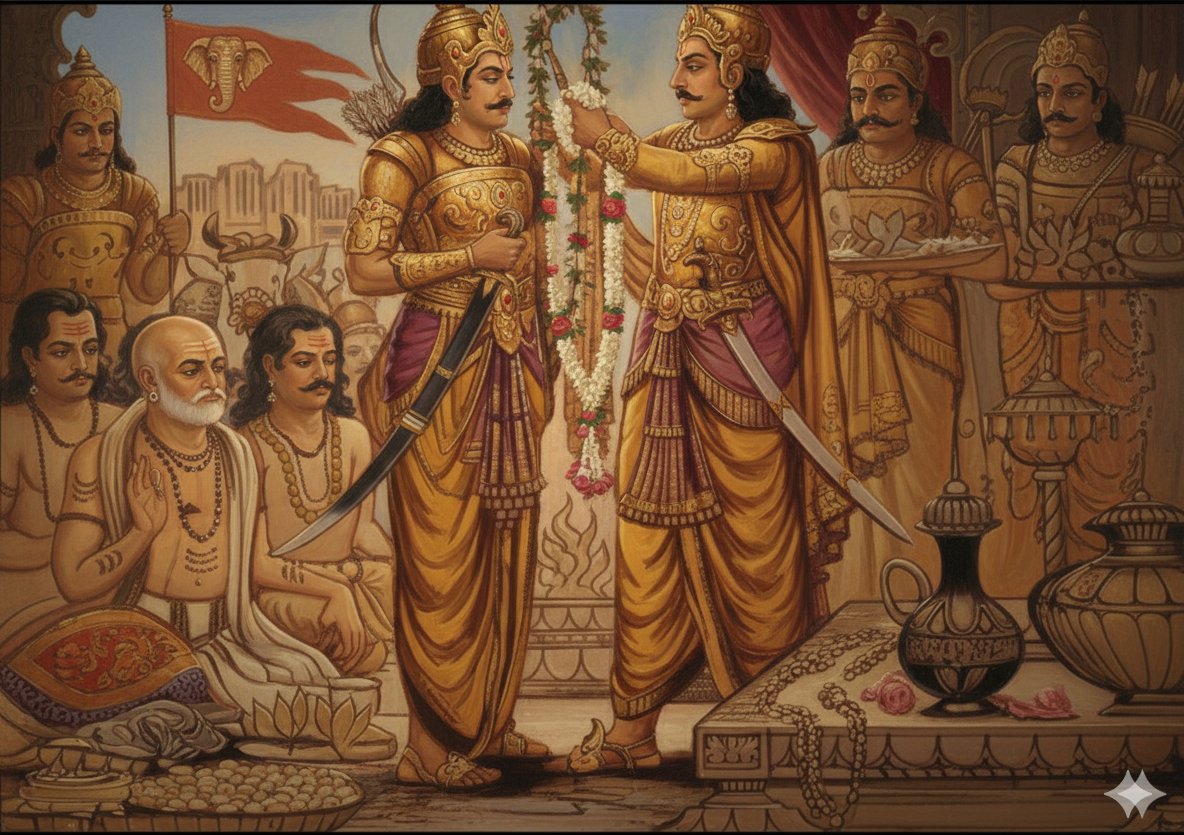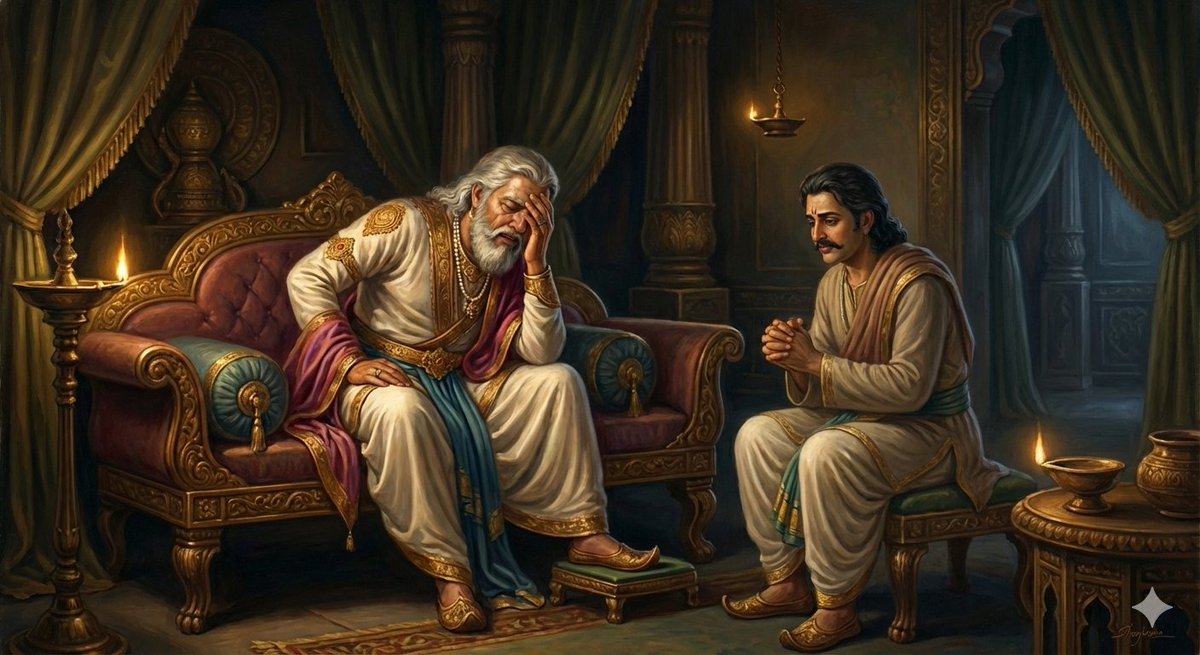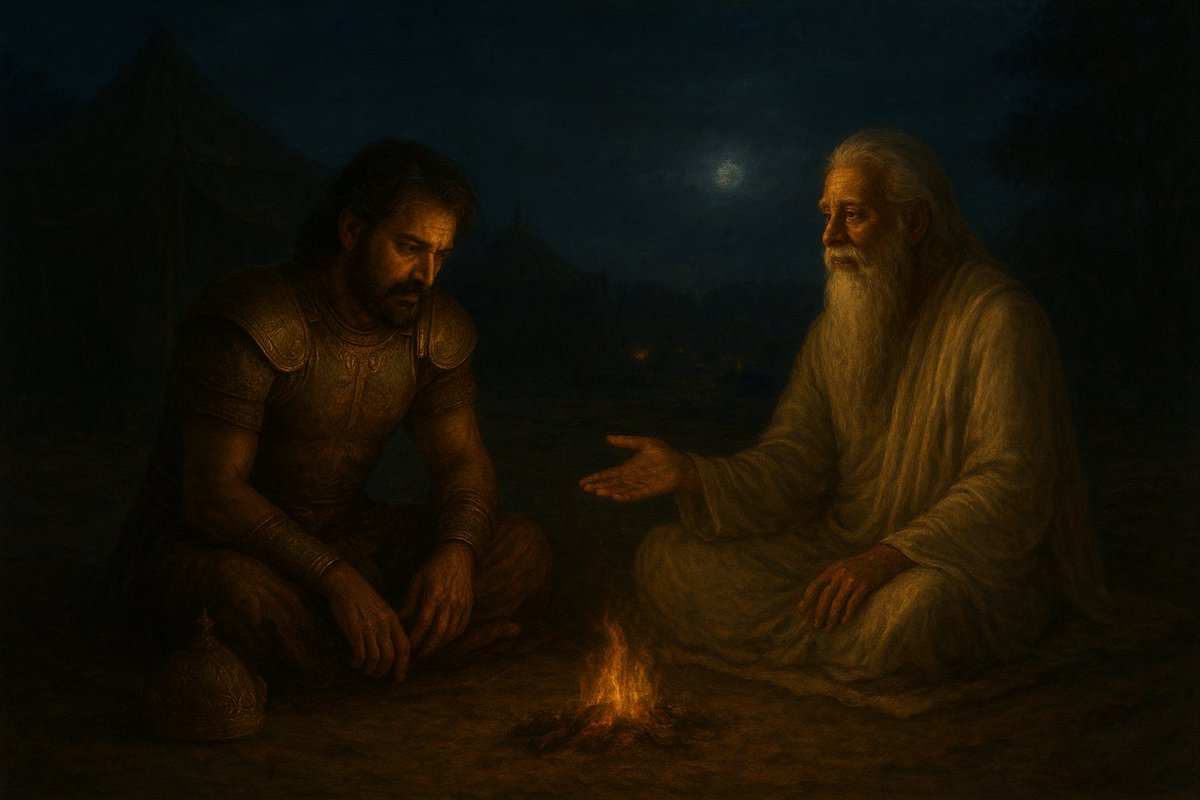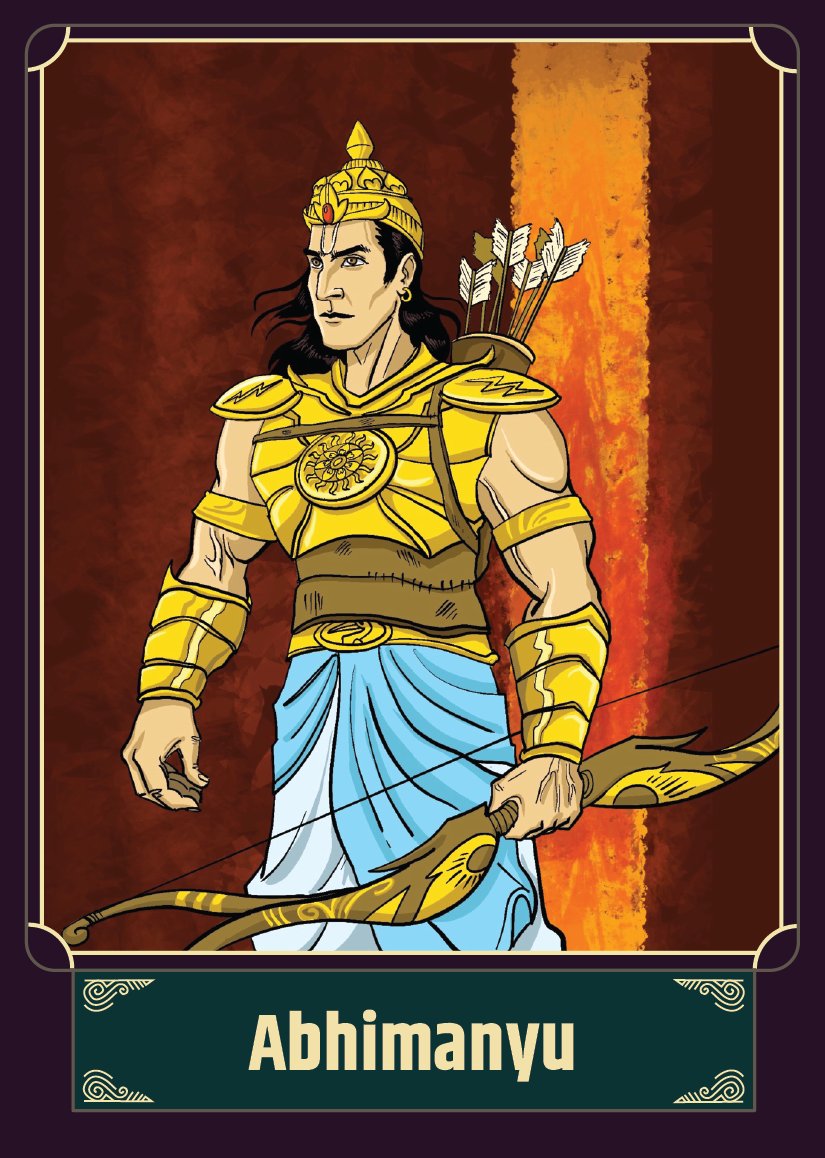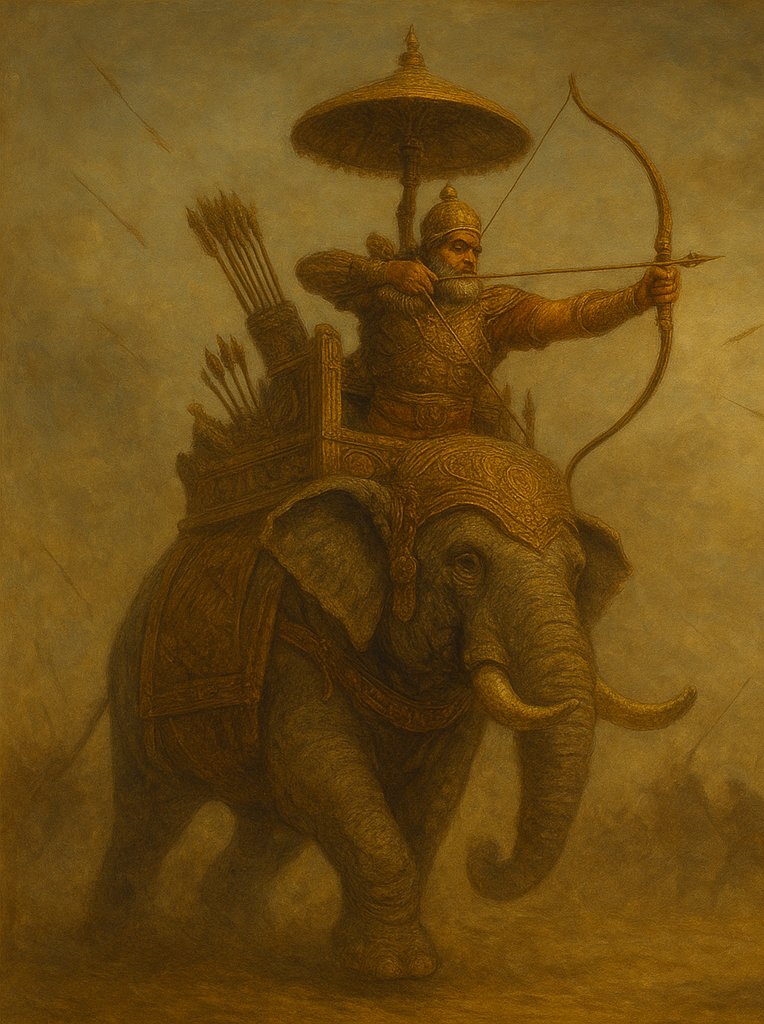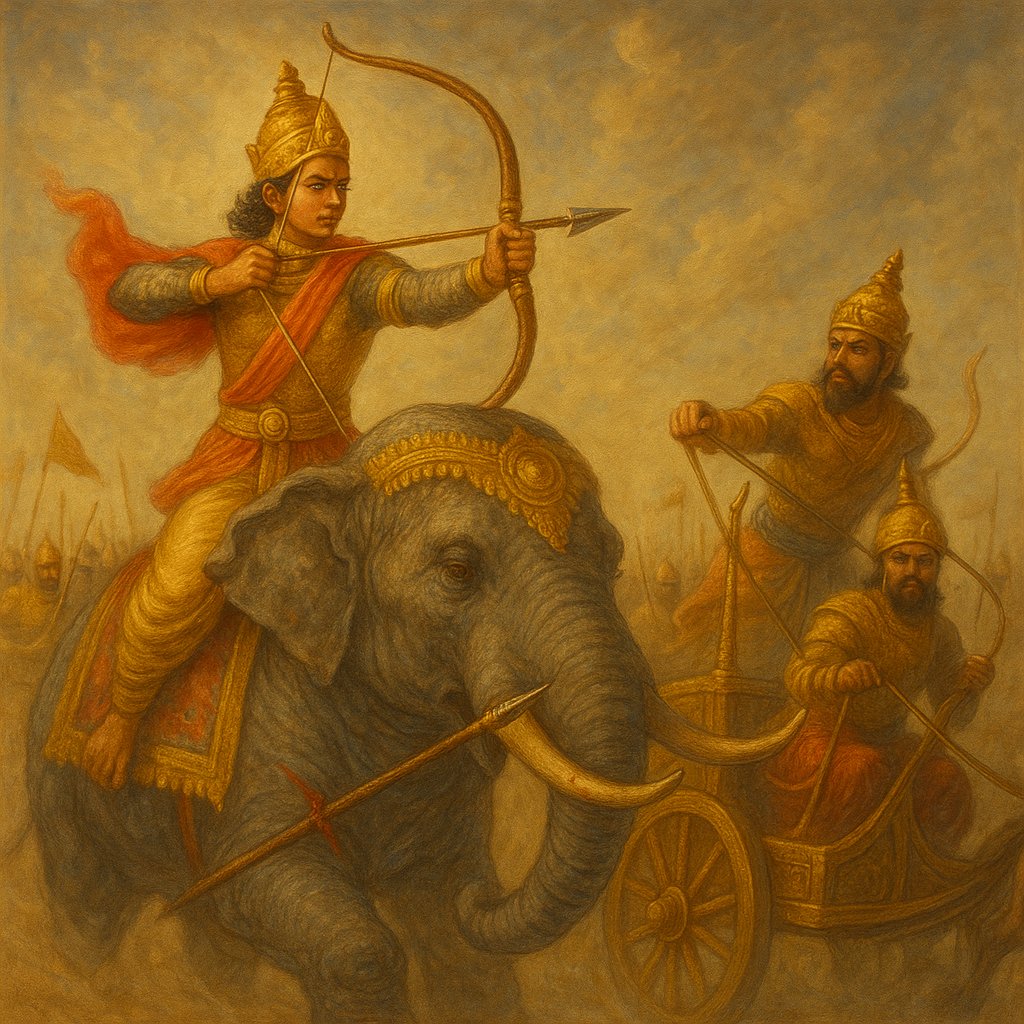Where was Sanjay during the war?
Sanjay is an important character of Mahabharata who is most famous for narrating the events of the great war to the blind king. He is the primary narrator of all the chapters of Kurukshetra war.
According to popular belief Sanjay was sitting in front of Dhritarashtra during the entire duration of the war narrating him the live telecast of the events as they happened using the divine vision granted to him by Ved Vyasa.
What does the book say? Let's examine.
Sanjay is an important character of Mahabharata who is most famous for narrating the events of the great war to the blind king. He is the primary narrator of all the chapters of Kurukshetra war.
According to popular belief Sanjay was sitting in front of Dhritarashtra during the entire duration of the war narrating him the live telecast of the events as they happened using the divine vision granted to him by Ved Vyasa.
What does the book say? Let's examine.
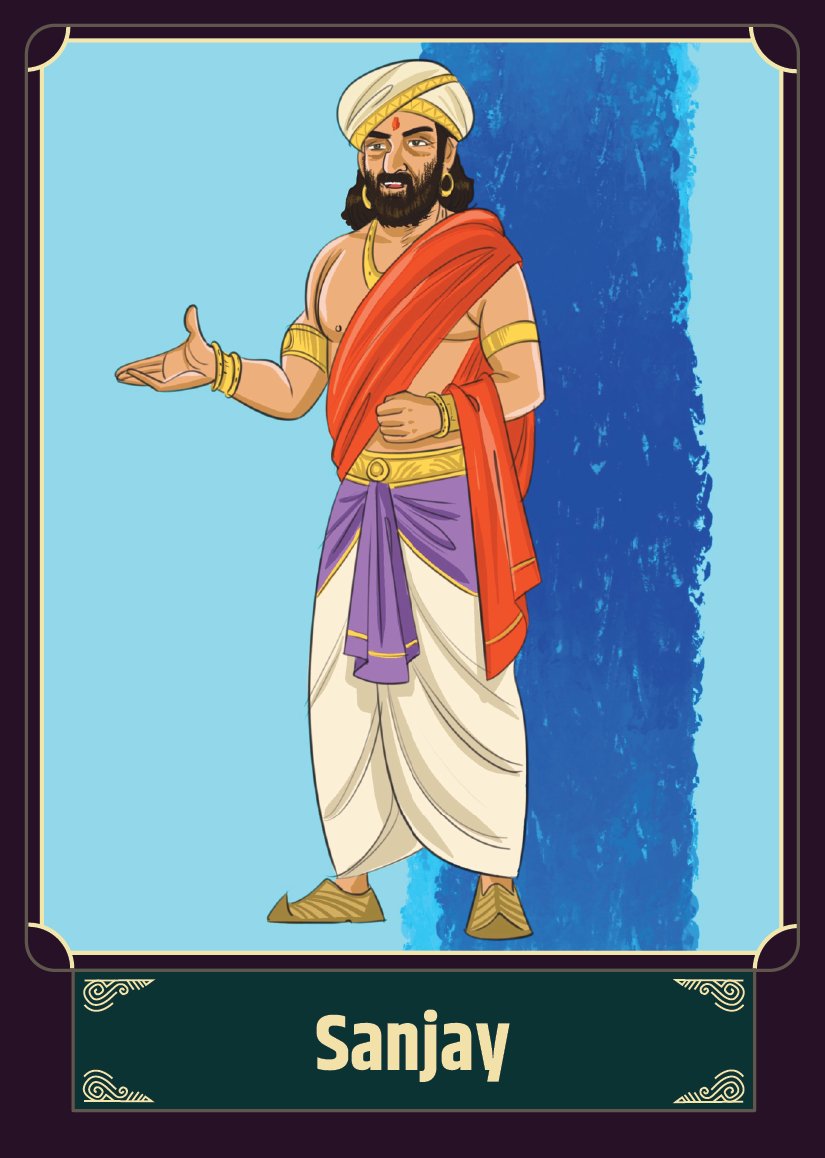
This is what Vyasdev's boon to Sanjay was. Notice the last verse in the attached screenshot. It effectively says that Sanjay would survive the war and would be protected from any harm.
Now if Sanjay was supposed to spend his entire time sitting inside Hastinapur castle, this last verse does not make any sense.
Now if Sanjay was supposed to spend his entire time sitting inside Hastinapur castle, this last verse does not make any sense.

This is how Sanjay's narration of the war begins. Even the chapter name here mentions Sanjay returning from the battlefield after Bhishma's death. It is clear from the following that Dhritarashtra was hearing about the events of the war after the fact not a live telecast.
It is also clear that Sanjay was present in the battlefield and not in Hastinapur during the war.
It is also clear that Sanjay was present in the battlefield and not in Hastinapur during the war.

Here in the beginning of Drona Parva it says without any ambiguity about Sanjay returning to Hastinapur from Kurukshetra war camp. 

This is the beginning of Karna Parva which even mentions the medium of transport used by Sanjay to travel between Kurukshetra and Hastinapur - he rode during the night using horses as swift as wind. 

Now this portion here in Shalya Parva mentions without any doubt, what was Sanjay up to during his presence in the battlefield - he was fighting in the war.
The first screenshot here mentions about him fighting alongside Kripacharya fighting against Dhrishtadyumna.
Second screenshot talks about him getting captured by Satyaki while running away from Dhrishtadyumna.

The first screenshot here mentions about him fighting alongside Kripacharya fighting against Dhrishtadyumna.
Second screenshot talks about him getting captured by Satyaki while running away from Dhrishtadyumna.


Now this part here takes you back to the part of Vyasa's boon in the beginning where he promised about Sanjay surviving the war.
When Satyaki was about to kill Sanjay on Dhrishtadyumna's instructions, Vyasdev appeared in the battlefield and protected Sanjay.
Sanjay even had an emotion encounter with Duryodhana after this incident.
When Satyaki was about to kill Sanjay on Dhrishtadyumna's instructions, Vyasdev appeared in the battlefield and protected Sanjay.
Sanjay even had an emotion encounter with Duryodhana after this incident.

Now there is an interesting anecdote. Check out the number of Shlokas in Bhishma, Drona, Karna and Shalya Parva of Mahabharata.
Bhishma Parva ~ close to 6000
Drona Parva ~ close to 9000
Karna Parva ~ close to 5000
Shalya Parva ~ close to 3200
2 days of Karna are described in around the same number of verses as 10 days of Bhishma.
Maybe because Sanjaya's sessions with Dhritarashtra were almost of same lengths and he tried to fit in as much details as possible in the given amount of time.
Bhishma Parva ~ close to 6000
Drona Parva ~ close to 9000
Karna Parva ~ close to 5000
Shalya Parva ~ close to 3200
2 days of Karna are described in around the same number of verses as 10 days of Bhishma.
Maybe because Sanjaya's sessions with Dhritarashtra were almost of same lengths and he tried to fit in as much details as possible in the given amount of time.
Now you know what was Sanjay up to during the Kurukshetra war based on various consistent references from the book. You need not rely on cinematic adaptations which probably took some liberties because of the medium.
Here is the video we have created in Hindi on this topic for you to share with everyone.
Here is the video we have created in Hindi on this topic for you to share with everyone.
If you like what we are doing, please feel free to RT and spread the word.
To support us financially please visit and order games and puzzles based on Mahabharata and Ramayana for the young ones in your family.mysutradhar.com
To support us financially please visit and order games and puzzles based on Mahabharata and Ramayana for the young ones in your family.mysutradhar.com
• • •
Missing some Tweet in this thread? You can try to
force a refresh



